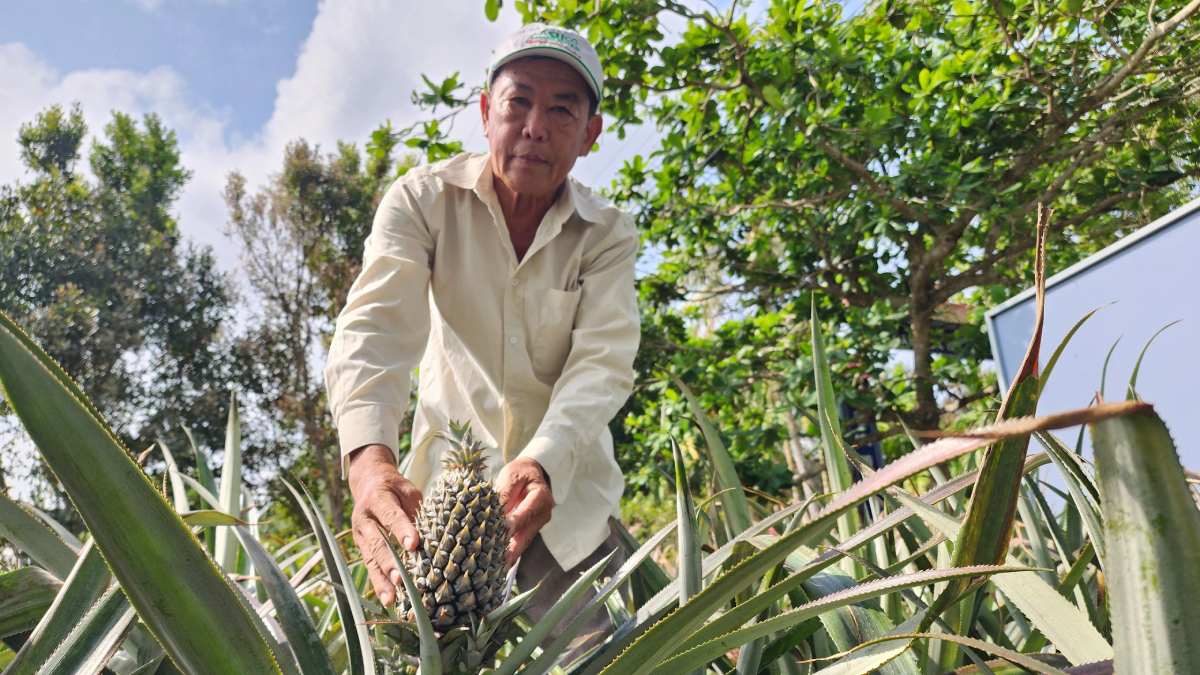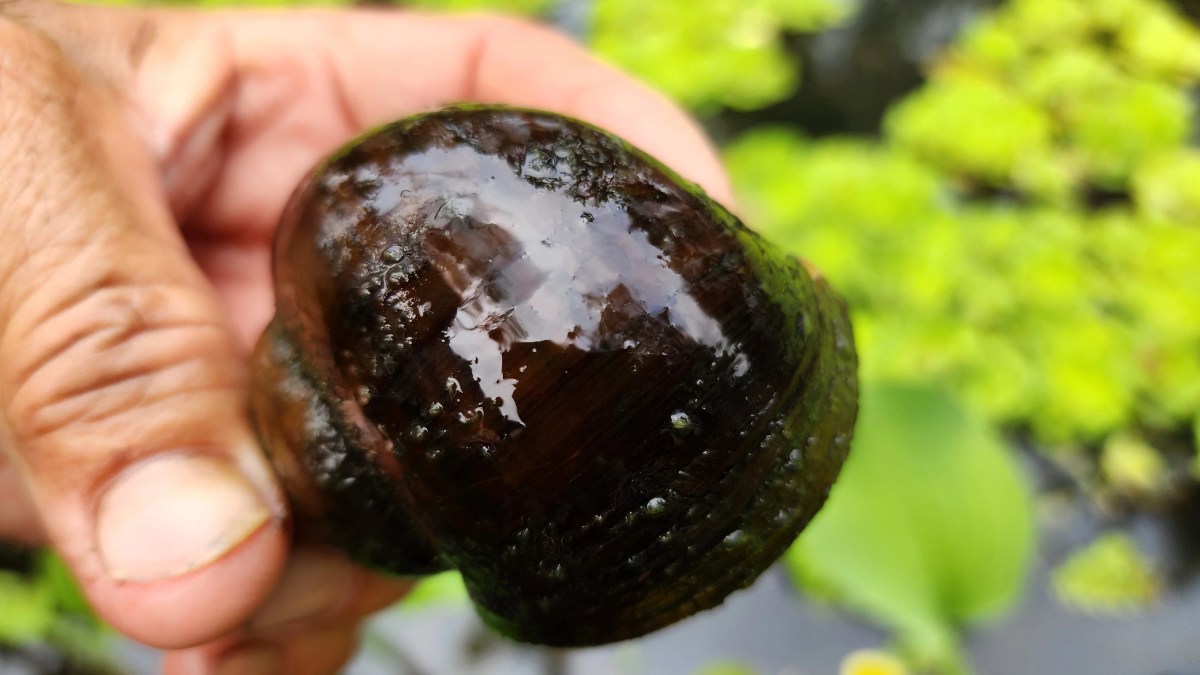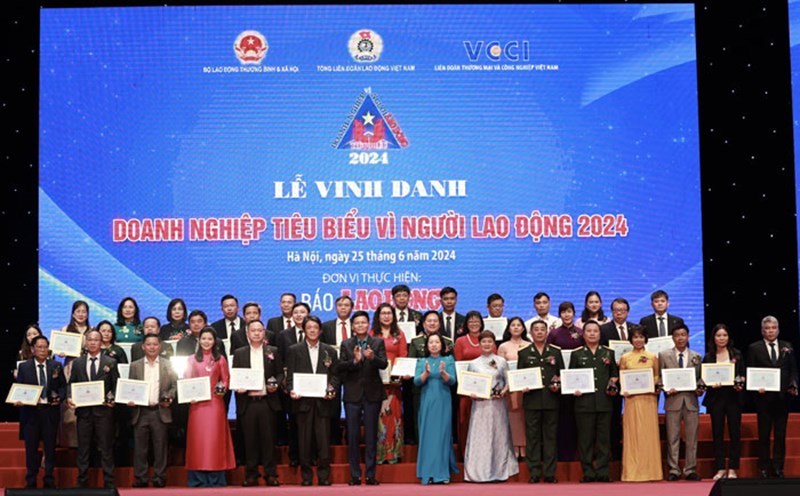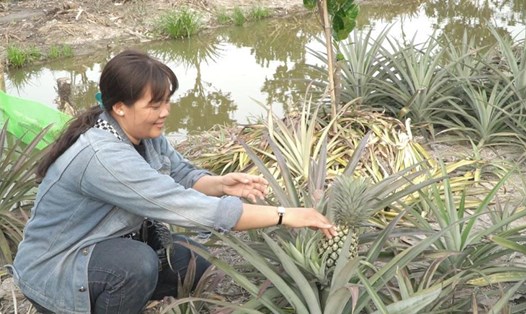Type 1 pineapple reaches 80%
That is the story of Mr. Le Thanh Son (65 years old, living in Hoa Luu commune, Can Tho city). Realizing the increasing demand for clean agricultural products on the market, with more than 40 years of experience in growing pineapples in the traditional way, Mr. Son has not hesitated to switch to a new, completely organic farming method.

Notably, in 2023, Mr. Son received technical support and training on the farming process according to European standards on an area of 1.5 hectares, thanks to participating in the organic pineapple growing model within the framework of the Project to enhance resilience to climate change in Vi Thanh City (old), sponsored by the Norwegian Alliance.
A year later, to completely isolate the pineapple garden from chemical fertilizers, this farmer continued to experiment with bio Lacto EM biological product. every half month, spray the microbiotic product, combine with fertilizers and some organic ingredients.
With a methodical process, applying organic methods, not using chemical fertilizers or pesticides, Mr. Son's pineapple fields produce 3 crops/2 years with an average yield of 700 kg/1,000 m2/crop. Not only does it produce good results, the rate of beautiful pine trees meeting type 1 standards accounts for 80% (selling price of 9,000 VND/kg), helping this old farmer earn nearly 200 million VND/year.
Steady income from Thai snails
Instead of just earning a source of income from pineapple fields, Mr. Son came up with the idea of raising Thai snails in 2,000 m2 of surrounding ditches.

According to this old farmer, although this is a type of snail with high economic value and easy to raise, in the early stages he encountered many difficulties, even failing due to saline intrusion of water in the ditch. A while later, the salinity prevention sluice was built by the locality, giving him more motivation to boldly try again.
Previously, the rainwater at the beginning of the season overflowed from the shore into the ditch, causing snails to shock the environment and die. Now that there are salinity sluices, it is effective, combined with the application of microbiotics, helping to stabilize the water environment, limiting fish and snails, and also reducing the loss rate, Mr. Son shared.
This veteran farmer added that organic materials used in cultivation not only help pineapple roots stay healthy and increase the fat content of the soil, but also make the pond environment clean and favorable for snails to grow.
Currently, the consumption unit of Thai snails is concentrated in households that need to propagate to raise or make materials for the kitchen snail model. Meat snails are also popular with the market because they are soft and less viscous. By selling snails and breeding animals, Mr. Son has an additional income of about 15 million VND/month.
In addition to self-producing at home, I also share techniques for growing organic pineapples combined with raising snails for people around. This contributes to increasing the scale and output of local production, meeting market demand for clean products and sustainable agriculture, said Mr. Son.










